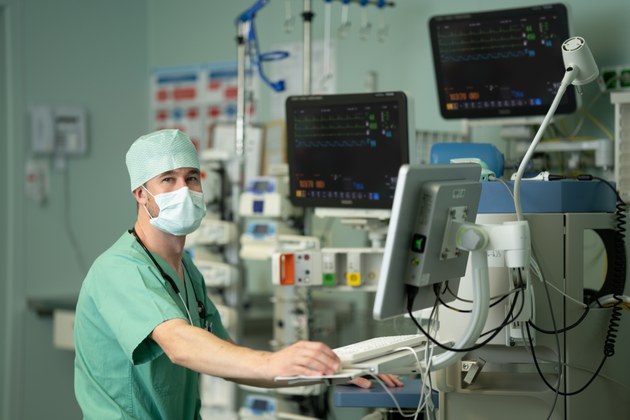Helix COVID-19 NGS Test One of the First Sequencing-Based COVID-19 Tests To Secure FDA Emergency Use Authorization
|
By HospiMedica International staff writers Posted on 11 Aug 2020 |
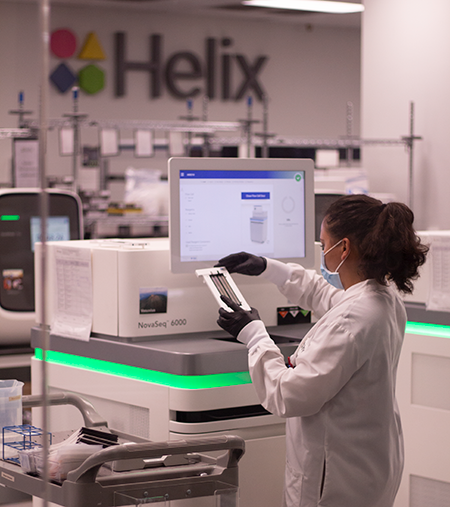
Illustration
Helix (San Mateo, CA, USA) has received Emergency Use Authorization (EUA) from the US Food and Drug Administration (FDA) for the Helix COVID-19 NGS Test, making it one of the first sequencing-based COVID-19 tests to be granted FDA EUA.
The test is an amplicon-based next-generation sequencing (NGS) test intended for the qualitative detection of nucleic acid from the SARS-CoV-2 in upper respiratory specimens (nasopharyngeal swabs, oropharyngeal (throat) swab, mid-turbinate nasal swabs, and anterior nasal swabs) from individuals suspected of COVID-19 by their healthcare provider. This test is highly multiplexed to enable a large number of samples to be sequenced on each instrument and is a critical part of Helix's plan to scale its COVID-19 capacity to 100,000 tests per day and potentially further. As one of the first next-generation sequencing tests authorized by the FDA, the Helix COVID-19 NGS Test will enable Helix to diversify and add redundancy to its existing supply chain for its PCR-based test, the Helix COVID-19 Test, which has also obtained EUA from the FDA.
"The authorization of our next-generation sequencing-based test is an important step forward in dramatically scaling our COVID-19 testing capacity while maintaining high sensitivity," said Marc Stapley, Helix President and CEO. "Combined with the recent funding we announced from the NIH RADx program, we will quickly become one of the highest throughput COVID-19 testing labs in the country and help millions of Americans access much-needed tests with next-day turnaround time."
Related Links:
Helix
The test is an amplicon-based next-generation sequencing (NGS) test intended for the qualitative detection of nucleic acid from the SARS-CoV-2 in upper respiratory specimens (nasopharyngeal swabs, oropharyngeal (throat) swab, mid-turbinate nasal swabs, and anterior nasal swabs) from individuals suspected of COVID-19 by their healthcare provider. This test is highly multiplexed to enable a large number of samples to be sequenced on each instrument and is a critical part of Helix's plan to scale its COVID-19 capacity to 100,000 tests per day and potentially further. As one of the first next-generation sequencing tests authorized by the FDA, the Helix COVID-19 NGS Test will enable Helix to diversify and add redundancy to its existing supply chain for its PCR-based test, the Helix COVID-19 Test, which has also obtained EUA from the FDA.
"The authorization of our next-generation sequencing-based test is an important step forward in dramatically scaling our COVID-19 testing capacity while maintaining high sensitivity," said Marc Stapley, Helix President and CEO. "Combined with the recent funding we announced from the NIH RADx program, we will quickly become one of the highest throughput COVID-19 testing labs in the country and help millions of Americans access much-needed tests with next-day turnaround time."
Related Links:
Helix
Latest COVID-19 News
- Low-Cost System Detects SARS-CoV-2 Virus in Hospital Air Using High-Tech Bubbles
- World's First Inhalable COVID-19 Vaccine Approved in China
- COVID-19 Vaccine Patch Fights SARS-CoV-2 Variants Better than Needles
- Blood Viscosity Testing Can Predict Risk of Death in Hospitalized COVID-19 Patients
- ‘Covid Computer’ Uses AI to Detect COVID-19 from Chest CT Scans
- MRI Lung-Imaging Technique Shows Cause of Long-COVID Symptoms
- Chest CT Scans of COVID-19 Patients Could Help Distinguish Between SARS-CoV-2 Variants
- Specialized MRI Detects Lung Abnormalities in Non-Hospitalized Long COVID Patients
- AI Algorithm Identifies Hospitalized Patients at Highest Risk of Dying From COVID-19
- Sweat Sensor Detects Key Biomarkers That Provide Early Warning of COVID-19 and Flu
- Study Assesses Impact of COVID-19 on Ventilation/Perfusion Scintigraphy
- CT Imaging Study Finds Vaccination Reduces Risk of COVID-19 Associated Pulmonary Embolism
- Third Day in Hospital a ‘Tipping Point’ in Severity of COVID-19 Pneumonia
- Longer Interval Between COVID-19 Vaccines Generates Up to Nine Times as Many Antibodies
- AI Model for Monitoring COVID-19 Predicts Mortality Within First 30 Days of Admission
- AI Predicts COVID Prognosis at Near-Expert Level Based Off CT Scans
Channels
Critical Care
view channel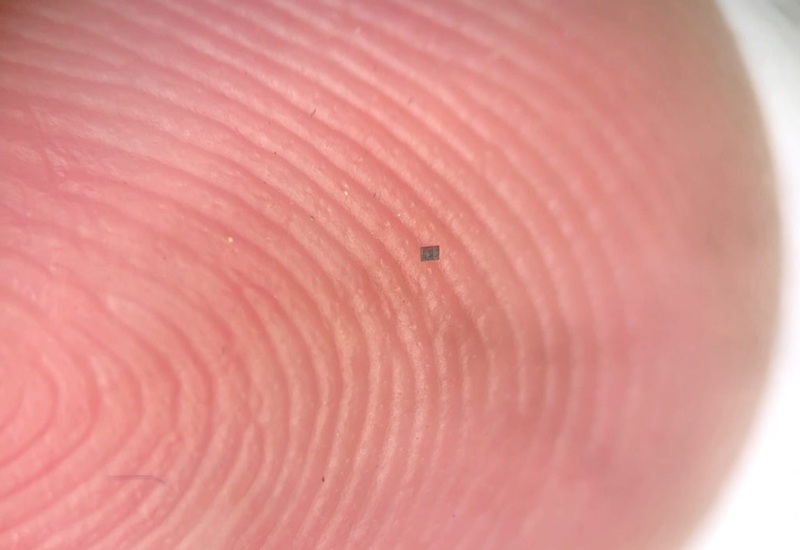
World's Smallest Programmable Robot Opens Up New Possibilities in Medicine
Robots have steadily shrunk over decades, but building machines that can operate autonomously below one millimeter has remained a major challenge. At this scale, traditional movement and control mechanisms... Read more
Remote Ventilate View Platform Enables Real-Time Monitoring of Patient-Ventilator Asynchrony
Patient–ventilator asynchrony is common in severe pneumonia and can worsen outcomes if not identified and corrected early. In routine practice, PVA is often assessed through brief bedside observations,... Read moreSurgical Techniques
view channel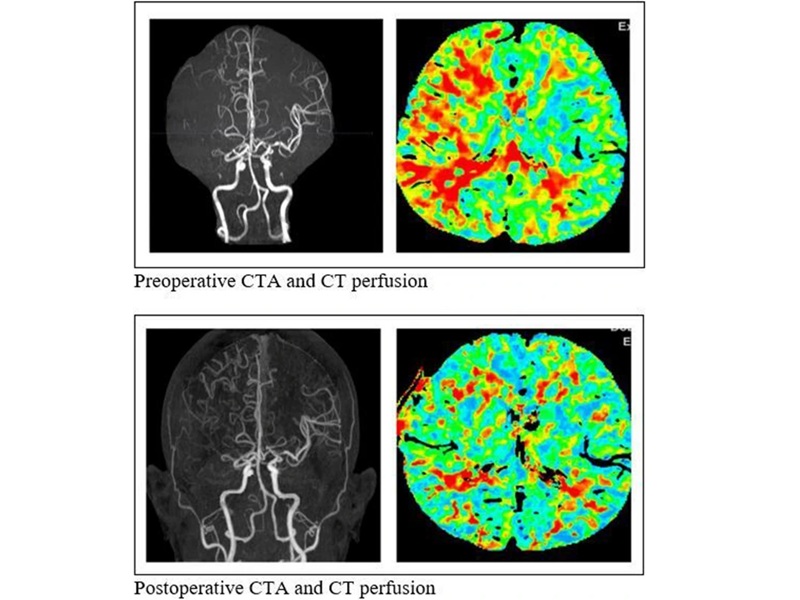
Simple Bypass Protocol Improves Outcomes in Chronic Cerebral Occlusion
Chronic cerebral arterial occlusion and moyamoya disease are major causes of ischemic stroke, particularly in regions where access to advanced diagnostic tools is limited. Assessing cerebral blood flow... Read more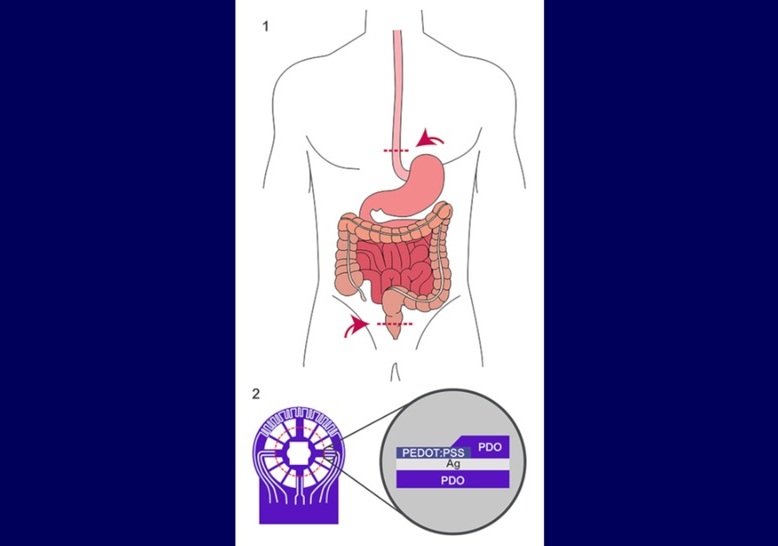
Implantable Absorbable Sensor Detects Life-Threatening Complications After Intestinal Surgery
Intestinal anastomoses are among the riskiest procedures in abdominal surgery, with complications such as circulatory disorders or immune reactions often developing rapidly and unpredictably.... Read morePatient Care
view channel
Revolutionary Automatic IV-Line Flushing Device to Enhance Infusion Care
More than 80% of in-hospital patients receive intravenous (IV) therapy. Every dose of IV medicine delivered in a small volume (<250 mL) infusion bag should be followed by subsequent flushing to ensure... Read more
VR Training Tool Combats Contamination of Portable Medical Equipment
Healthcare-associated infections (HAIs) impact one in every 31 patients, cause nearly 100,000 deaths each year, and cost USD 28.4 billion in direct medical expenses. Notably, up to 75% of these infections... Read more
Portable Biosensor Platform to Reduce Hospital-Acquired Infections
Approximately 4 million patients in the European Union acquire healthcare-associated infections (HAIs) or nosocomial infections each year, with around 37,000 deaths directly resulting from these infections,... Read moreFirst-Of-Its-Kind Portable Germicidal Light Technology Disinfects High-Touch Clinical Surfaces in Seconds
Reducing healthcare-acquired infections (HAIs) remains a pressing issue within global healthcare systems. In the United States alone, 1.7 million patients contract HAIs annually, leading to approximately... Read moreHealth IT
view channel
EMR-Based Tool Predicts Graft Failure After Kidney Transplant
Kidney transplantation offers patients with end-stage kidney disease longer survival and better quality of life than dialysis, yet graft failure remains a major challenge. Although a successful transplant... Read more
Printable Molecule-Selective Nanoparticles Enable Mass Production of Wearable Biosensors
The future of medicine is likely to focus on the personalization of healthcare—understanding exactly what an individual requires and delivering the appropriate combination of nutrients, metabolites, and... Read moreBusiness
view channel
Philips and Masimo Partner to Advance Patient Monitoring Measurement Technologies
Royal Philips (Amsterdam, Netherlands) and Masimo (Irvine, California, USA) have renewed their multi-year strategic collaboration, combining Philips’ expertise in patient monitoring with Masimo’s noninvasive... Read more
B. Braun Acquires Digital Microsurgery Company True Digital Surgery
The high-end microsurgery market in neurosurgery, spine, and ENT is undergoing a significant transformation. Traditional analog microscopes are giving way to digital exoscopes, which provide improved visualization,... Read more
CMEF 2025 to Promote Holistic and High-Quality Development of Medical and Health Industry
The 92nd China International Medical Equipment Fair (CMEF 2025) Autumn Exhibition is scheduled to be held from September 26 to 29 at the China Import and Export Fair Complex (Canton Fair Complex) in Guangzhou.... Read more













_1.jpg)

